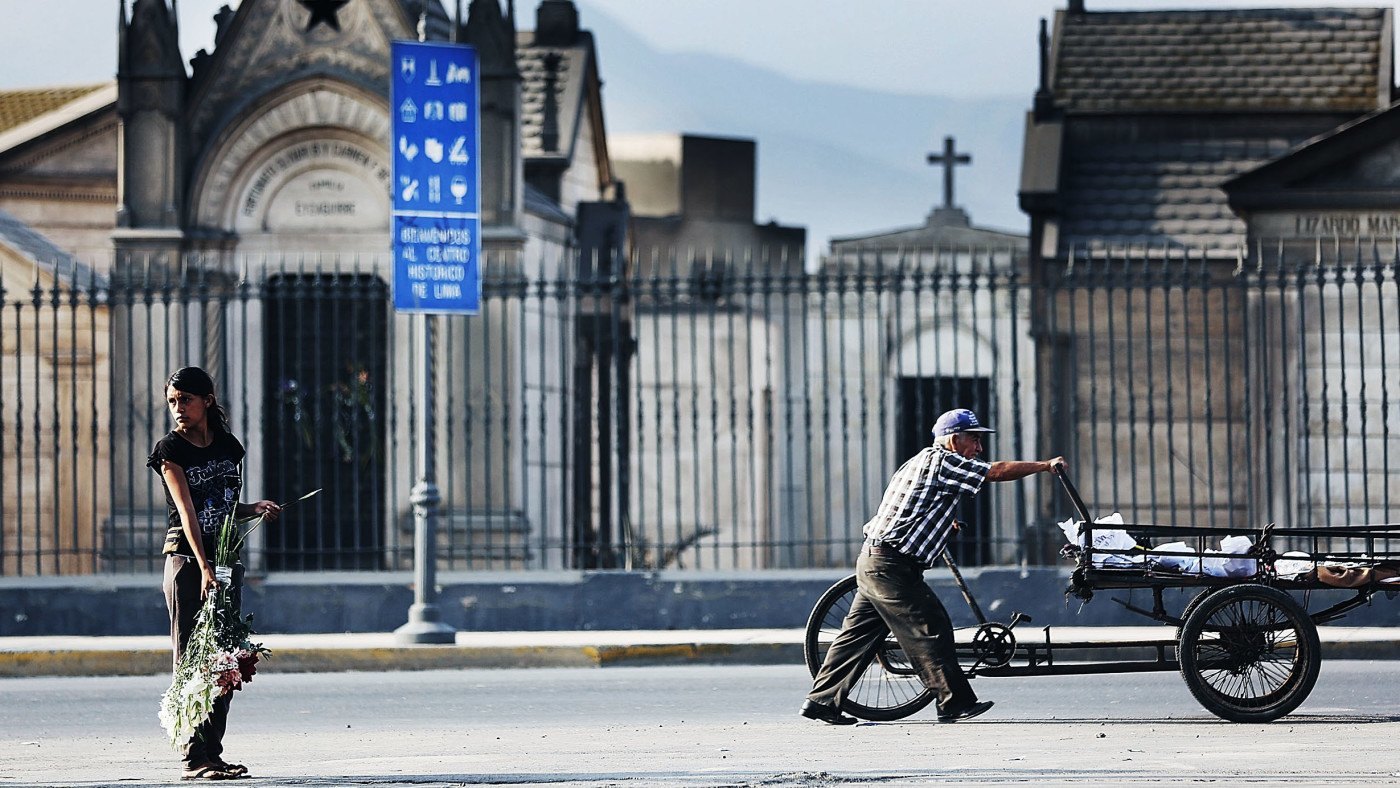On April 11th, Mario Vargas Llosa received the “Living Legend Award” in the Coolidge Auditorium of the Library of Congress. The ceremony fits into a larger set of celebrations: the Peruvian novelist turned 80 on March 28, an event that spurred a two-days conference in Madrid and a Festschrift that include 80 congratulatory essays.
The case for Vargas Llosa’s greatness hardly needs to be made. Awarded the Nobel Prize for Literature in 2010, he is among the very few that are likewise appreciated by the sages of Stockholm and by millions of readers all over the world. The cerebral reader may admire him for his formal elegance and the accuracy of his historical novels. Those who are into literature for the sheer pleasure of reading, love his characters and his mastery in telling a good story.
And yet readers of both kinds might have been baffled if they stopped by the Vargas Llosa’s celebrations in Madrid. The great man’s politics were praised as much as his novels. Tributes were paid, among others, by former head of states of Uruguay, Colombia and Chile and by three Spanish prime ministers: Felipe Gonzales, José Maria Aznar, Mariano Rajoy.
Vargas Llosa had himself a short adventure in party politics. In 1987, in his own native Peru, he raised the flag of the rule of law against an attempted nationalisation of banks and insurance companies. He wrote articles, spoke to crowds, led a political movement significantly called “Movimiento Libertad,” and eventually ran for President. He lost to Alberto Fujimori, whose drift towards authoritarianism he predicted and then battled.
Ever since, Vargas Llosa has been a point of reference for the Latin American liberals. He is an agitator for the liberation of Venezuelan political prisoners, a former friend-turned-arch-critic of Fidel Castro, a penetrating critic of that Latin American political invention which is making waves all over the world: peronismo, now called “populism.”
Some of Vargas Llosa’s fans read him in spite of his political commitment: it is only because he enchants them with his literary magic, that they forgive his being a renegade son of the left. But those who appreciate Vargas Llosa’s advocacy of freedom should not overlook his novels either. Political power is a revolving theme of those, certainly.
But we also owe to the Peruvian Nobelist something extremely rare in contemporary literature. He has an eye for businessmen as humane characters, as opposed to devilish busybodies.
Take one of his last novels, “The Discreet Hero.” The main character is the self-made man next door. He owns a little transport business, which he built brick by brick. People like him rarely appear in novels. Writers may be fascinated by wealth, but they see it as the ultimate result of inexhaustible, heartless greed. When they cannot associate free enterprise with drama, they bury it in a sense of routine. The “petty bourgeoisie” appears to be remarkable only for its materialism.
But are we sure that there is nothing remarkable in the ordinary pursuit of profits? If we need to locate the source of the wealth of nations, we shall perhaps look for the many little entrepreneurs that, though not a Steve Jobs, make a difference every day. Vargas Llosa understands them well.
These people are the humble priests of the religion of dedication and thrift: they turn lights off when they exit a room and wake up earlier than they could, because if they don’t, they feel to be slackers. Vargas Llosa’s “Discreet Hero” is all the many things that, in different proportions, make for them: the memory of his childhood poverty, a severe father, a sense of duty and self-help.
This is not at odds with the “realism” of Vargas Llosa’s novels: it is part of it. It is realism applied to business life too.
Most storytellers still go with the old familiar “Great Men Theory of History”. They only care for the mighty or the mightily unhappy, and therefore think business is trivial and the economy hopelessly mundane. Not only does this snobbery inform the generally anti-capitalist sentiments of the educated elites. It also wastes for us many interesting stories, of abnegation and thrift and courage and luck, that just never enter the radar screen of the wordsmiths.
Vargas Llosa, instead, truly has a taste for all the nuances of individuality. He can appreciate not only the artist, the conqueror or the tramp: but also the small entrepreneur, the petty bourgeois, whose life of calculations, of big and small deeds, is a life of moral choices too. He thinks the life of a small transport entrepreneur in Piura can be meaningful: and interesting too. This is what makes him such a great novelist, as well as a powerful critic of contemporary populism. The populists’ narrative is a drastic simplification, turning the wide-ranging novel that is reality into a simpler swashbuckler story.
We live in a world of ever increasing mutual dependency. We may know it or not, but we rely on other people’s cooperation for most of our daily endeavours. All our needs and our luxuries are attended by an army of people that trade with us for purely mercantile reasons and yet to our benefit. Complexity is what makes the populists’ simple solutions a leap in the dark: you can’t “fix” something you do not fully understand, let alone master.
This is an old and much forgotten lesson, from Adam Smith on. Mario Vargas Llosa rejuvenated it and made it more cogent, for millions.


